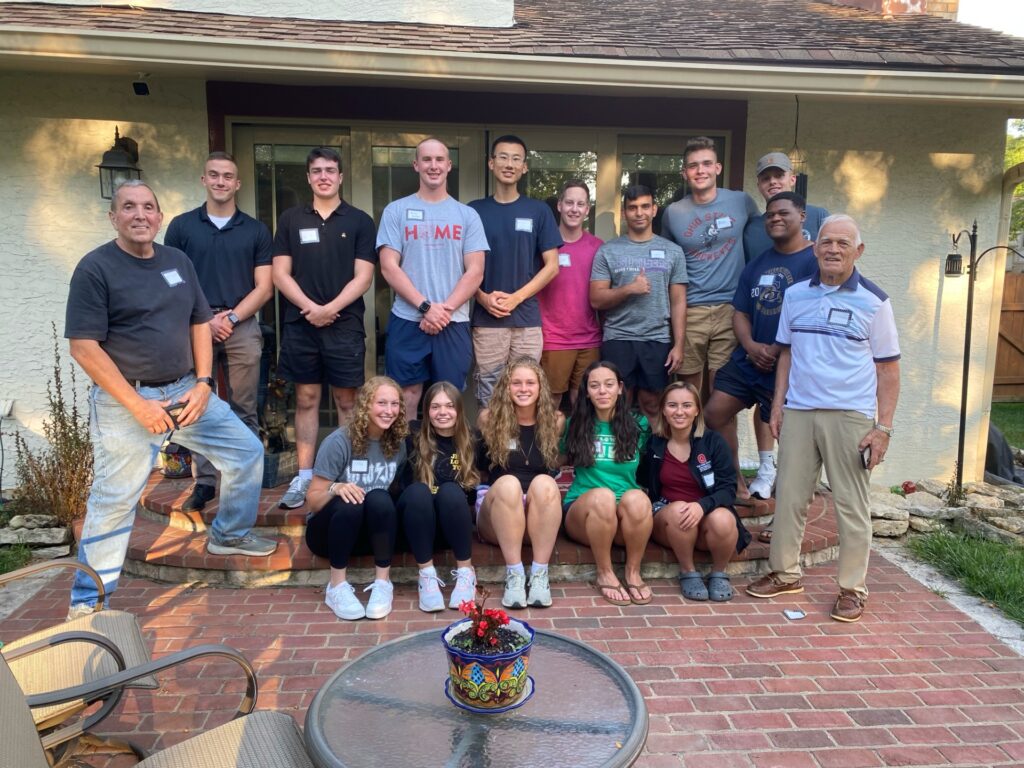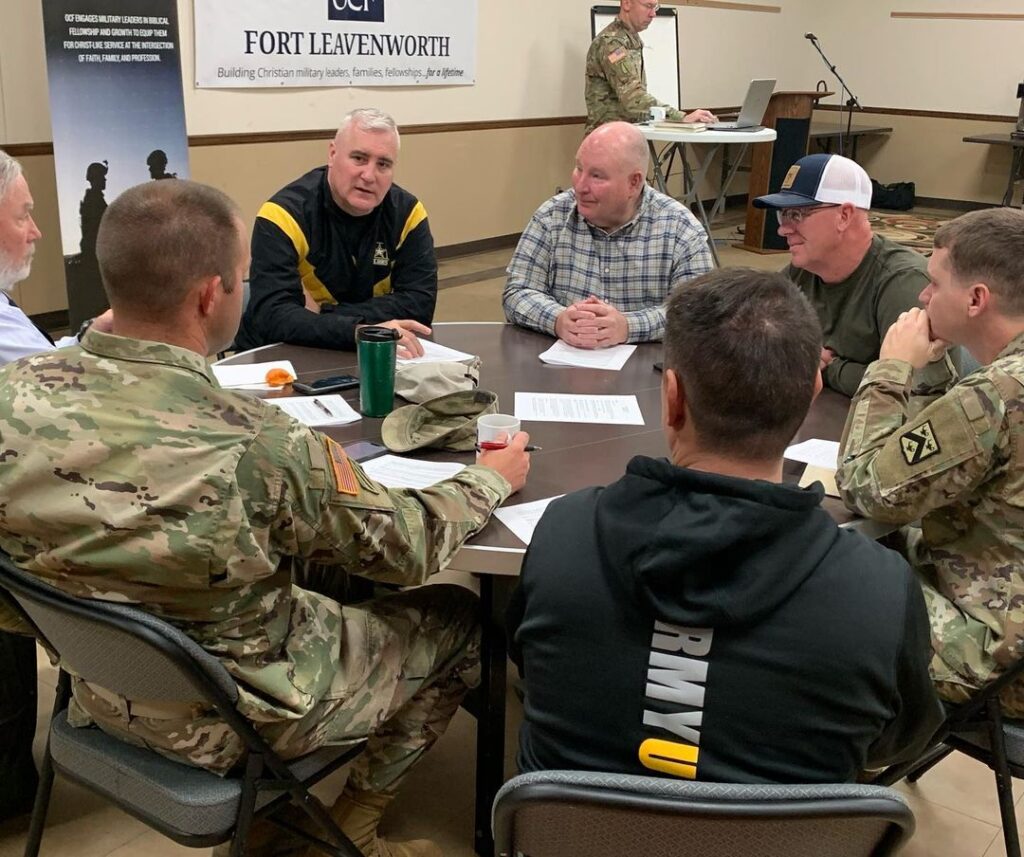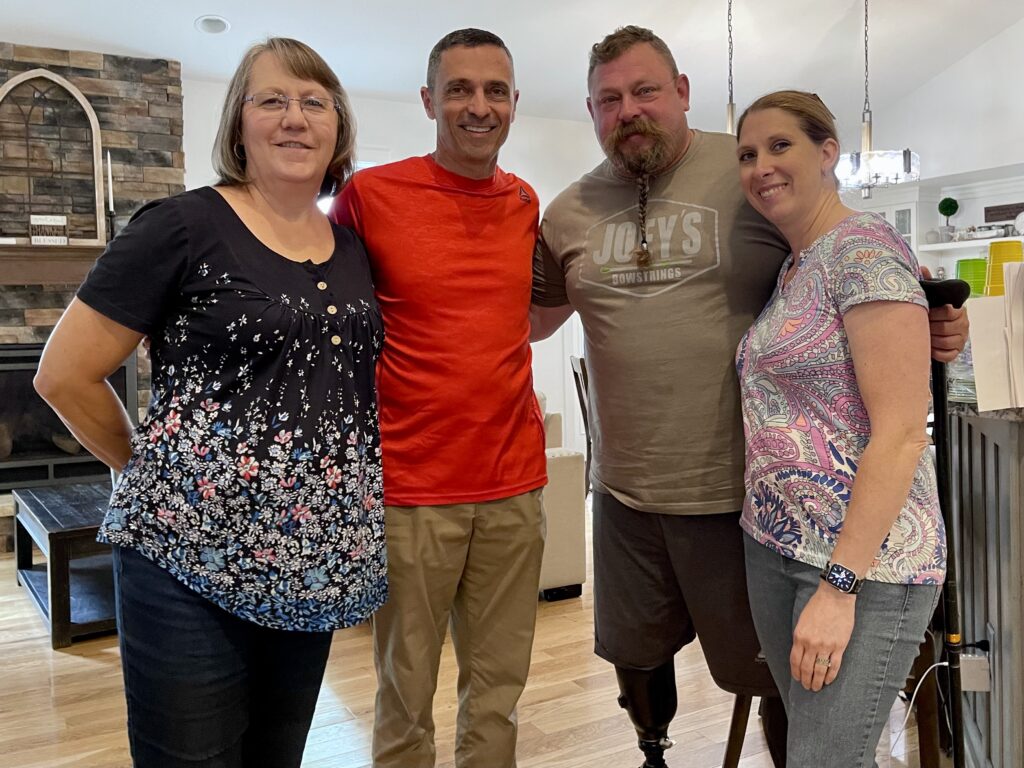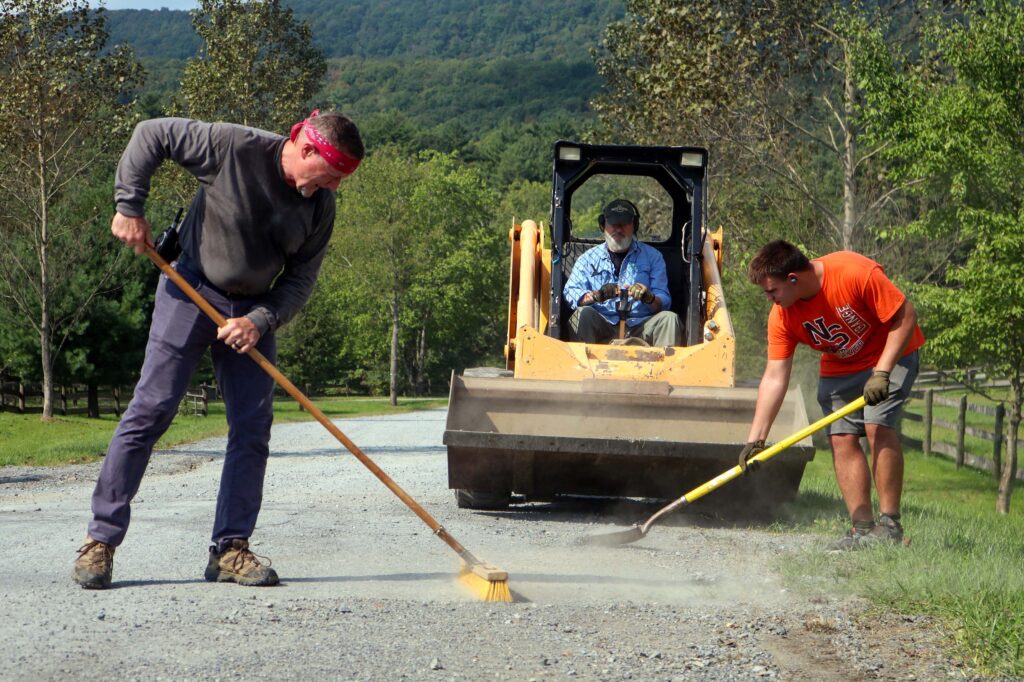Last Updated on May 8, 2024 by OCF Communications
“I was involved in OCF when I was on active duty, but not since I retired or left the service. OCF was important for me when I was on active duty, but I have not been involved since leaving the service.”
We hear these kinds of responses repeatedly while we travel as Regional Coordinators for OCF. While we certainly understand this sentiment, it is disappointing how a number of our members choose not to continue serving the military community and fulfill OCF’s vision and mission:
Our Vision at Officers’ Christian Fellowship is for the military community positively impacted through Christlike leaders.
Our Mission is to engage military leaders in Biblical fellowship and growth, to equip them for Christlike service at the intersection of faith, family, and profession.
There are several common reasons why OCFers disengage from the military community when they leave the service.
For some, it is the belief that former military personnel no longer can advise active duty, Reservists or Guardsmen/women and their families because the military is different now than when they were in the military. The sense is that any advice might be irrelevant to today’s military.
Another reason given to us is that veterans are now attending a civilian church and are actively engaged in the ministry of their local church and community, often citing the challenges from a lack of time or bandwidth to be involved in both church small groups and an OCF Bible study.
Since veterans are no longer on a military installation, even support of the chaplaincy does not seem like a possible or meaningful activity.
But what if one looked at these challenges and obstacles as opportunities? The OCF Handbook has a number of practical suggestions for continued involvement that we have also seen in our travels visiting OCFers in the Mountain Central Region. We not only visit OCF gatherings, but also ROTC detachments and chaplains.
We encourage you to consider how you can make an impact on the lives of those still serving our country. None of these various ways need take that much time but can have a significant impact on your life and the lives of others.
Look around, pray, and ask God how you can benefit the military through your involvement. It is our desire that all members see that “OCF for a lifetime” is a calling and not just a saying. Every challenge is an opportunity!
Following are five practical ways for veterans to continue to serve OCF for a lifetime.
1. Get involved in a local ROTC program

Often there is an ROTC program located close to an OCF veteran member. ROTC program cadre and staff are often not able or willing to be involved in leading or even encouraging biblical fellowship with their students.
Every service identifies spiritual fitness as a main pillar of development for servicemembers. We have found that ROTC units would welcome someone from the outside to engage with their cadets/midshipmen and even offer to lead Bible studies, something the cadre may not be able to do themselves.
At least reaching out to ROTC units is a start. Some parachurch organizations are trying to regionally support the cadets/midshipmen in running a Bible study but may not have the manpower to be physically present. Having an OCF member step up to come along side these young men and women to encourage, support, help, and mentor them would be such a blessing as they are beginning their military careers.
Also, cadets/midshipmen who attend ROTC summer training have the opportunity to attend chapel services and Bible studies. Some of them have asked for follow up when they return to their unit. An OCF member who is a veteran would be a great person to reach out to these cadets/midshipmen who are searching in their faith journey or just need encouragement.
Action step: Reach out to an ROTC detachment near you.
2. Mentor the next generation of military leaders
Our experience is that younger officers really appreciate being able to talk with those who have served in the past and may feel more comfortable engaging those not currently serving. There are not as many differences as you might think.
Many of the same situations and experiences we faced on active duty similarly confront today’s leaders. They particularly want to know how one integrates their faith and their profession. Whether with an officer across the world or in your local church, you can offer unique mentorship, encouragement, and support to the next generation.
Action step: Visit ocfusa.org/mentoring for guides and resources.

3. Support the chaplaincy

Even though you may not attend a chapel, it is still important to check in with local chaplains and offer support and encouragement. Chaplains have an immense responsibility and often do not have the support and resources they need to do their job. Even visiting a chaplain to check in with them, trying to understand what they are going through and praying with and for them, and their families, can have a significant impact on their morale and work.
We heard one story that relates to this need from another Regional Coordinator (RC). He told us that when he visited a local chaplain, the chaplain asked him what he wanted. When the RC told him that he did not want anything from the chaplain but was there to pray for him and his family, a tear ran down the chaplain’s face. What a powerful example of the importance of reaching out to our local military chaplains!
There may also be opportunities for your civilian church to help support chapel activities, such as when they have special events or activities that rely on volunteers.
Action step: Reach out to your local chaplain and ask how you can pray for and support them.
4. Be a Contact, Hospitality Home, Local Leader, and/or Area Coordinator
You can volunteer to be a Contact, an advocate for the ministry of OCF who helps others find Christian fellowship and local insights (churches, Bible studies, schools, housing, etc.), even if you are not leading an OCF Bible Study. You can also open your home to visitors for coffee, meals, or overnight stays by becoming a Hospitality Home.
Become a Local Leader or Area Coordinator and invite service men and women and their spouses to attend your OCF Bible study. So often the active-duty service member may feel they are too busy to start or lead their own fellowship. However, you, the veteran, may have more availability and time to make this happen.
Role descriptions are in Chapter 23 of the OCF Handbook and can be found on the OCF website.
Action step: Sign up ocfusa.org/list-me to become visible on our directory

5. Attend or volunteer at a Conference Center

OCF owns two conference centers, Spring Canyon in Colorado and White Sulphur Springs in Pennsylvania.
For decades, both locations have been homes away from home for many within the military community, and a contributing factor toward a return of that environment is the returning retired and separated individuals who continue to stay involved in OCF ministry there.
The two conference centers are encouraging people to attend their conference centers and volunteer to help and serve others there. We have found this to be both meaningful, spiritually rewarding, and a source of rest and refreshment.







 Don't miss your
Don't miss your
 Please Meet: Dr. Jeff Ginther, COL, USA (Ret.
Please Meet: Dr. Jeff Ginther, COL, USA (Ret.
How can I get a copy of the OCF Handbook?
You can visit ocfusa.org/handbook to download the PDF of the entire Handbook or view chapter-by-chapter webpages of the Handbook there as well.
We fall into this retired category of OCF and currently attend a local civilian church. We incorporated our small group by sending Christmas cards and Valentines to Chaplains. We got the chaplains’ names from a Club Beyond leader we know.
Wonderful ideas! Thanks for sharing.